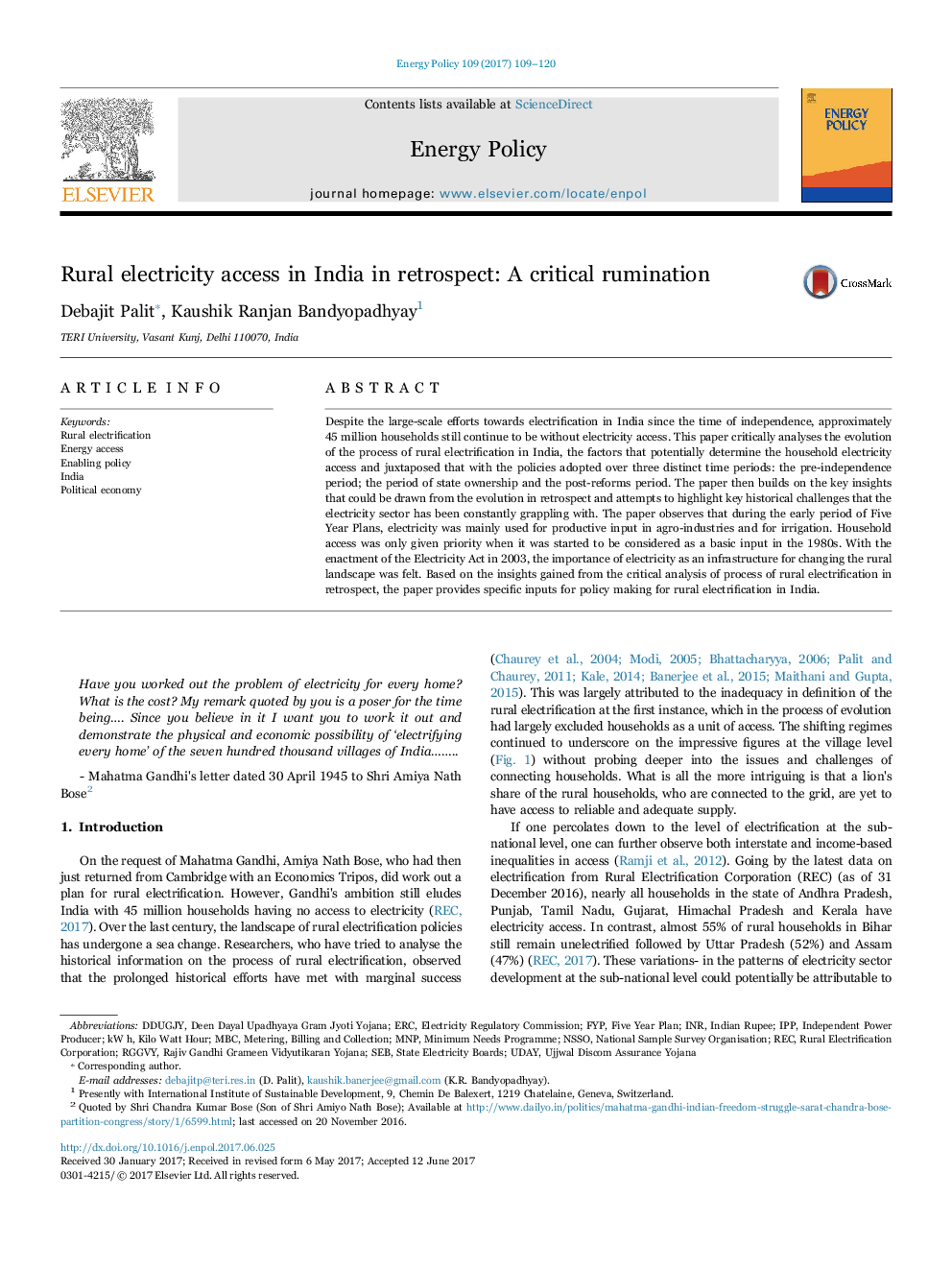ترجمه فارسی عنوان مقاله
دسترسی به برق روستایی در هند به لحاظ عقب ماندگی: یک نشاط بحرانی
عنوان انگلیسی
Rural electricity access in India in retrospect: A critical rumination
| کد مقاله | سال انتشار | تعداد صفحات مقاله انگلیسی |
|---|---|---|
| 119140 | 2017 | 12 صفحه PDF |
منبع

Publisher : Elsevier - Science Direct (الزویر - ساینس دایرکت)
Journal : Energy Policy, Volume 109, October 2017, Pages 109-120
ترجمه چکیده
با وجود تلاش های گسترده در زمینه برق در هند از زمان استقلال، تقریبا 45 میلیون خانوار همچنان بدون دسترسی به برق هستند. این مقاله تحلیلی از روند برق برق روستایی در هند را بررسی می کند که عوامل بالقوه دسترسی برق خانوار را تعیین می کند و با سیاست هایی که در طی سه دوره زمانی متفاوت اتخاذ شده است: دوره قبل از استقلال؛ دوره مالکیت دولتی و دوره پس از اصلاحات. سپس مقاله بر روی بینش کلیدی استوار است که می تواند از تکرار در گذشته پیش بینی شده و تلاش برای برجسته کردن چالش های تاریخی کلیدی است که بخش برق با آن مواجه بوده است. این مقاله نشان می دهد که در دوره اولیه برنامه پنج ساله، برق به طور عمده برای ورودی های تولیدی در صنایع کشاورزی و برای آبیاری استفاده می شود. دسترسی خانوار تنها اولویت داده می شود، زمانی که آن را به عنوان یک ورودی اولیه در دهه 1980 آغاز می شود. با تصویب قانون برق در سال 2003، اهمیت برق به عنوان یک زیرساخت برای تغییر چشم انداز روستایی احساس شد. بر اساس بینش های حاصل از تجزیه و تحلیل بحرانی فرآیند برق رسانی روستایی در گذشته، این مقاله منابع خاصی را برای سیاست گذاری برای برق رسانی روستایی در هند فراهم می کند.

